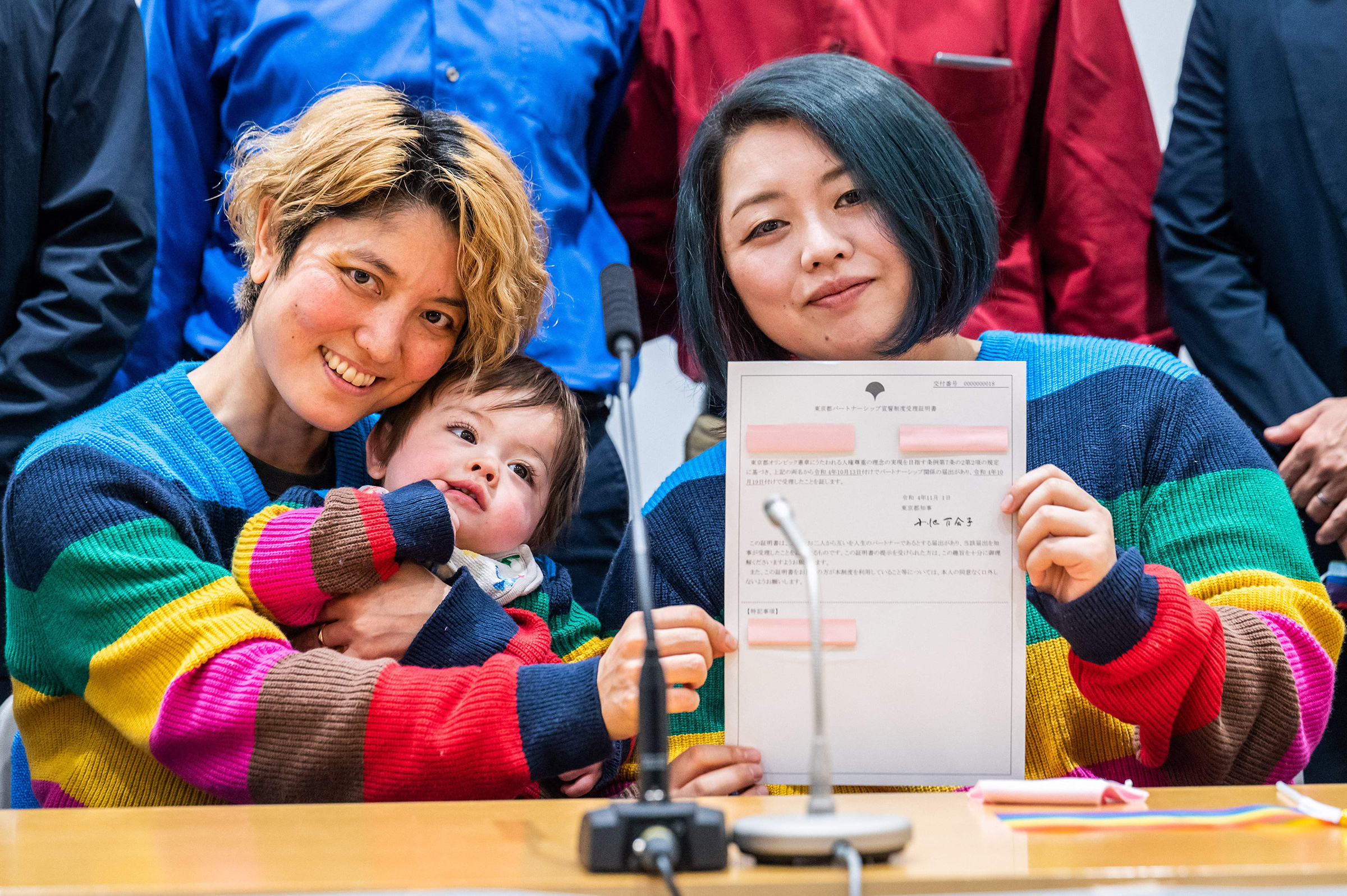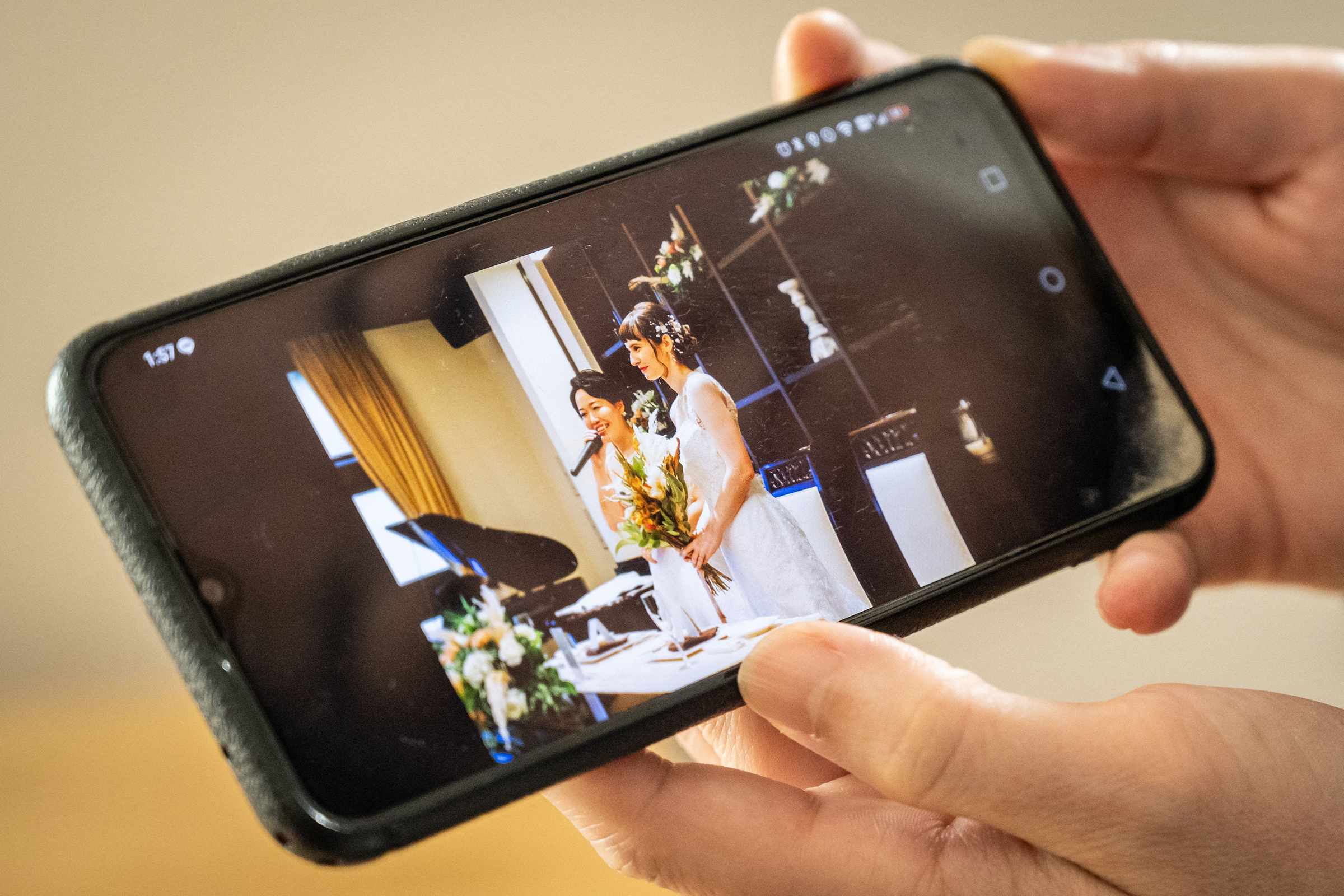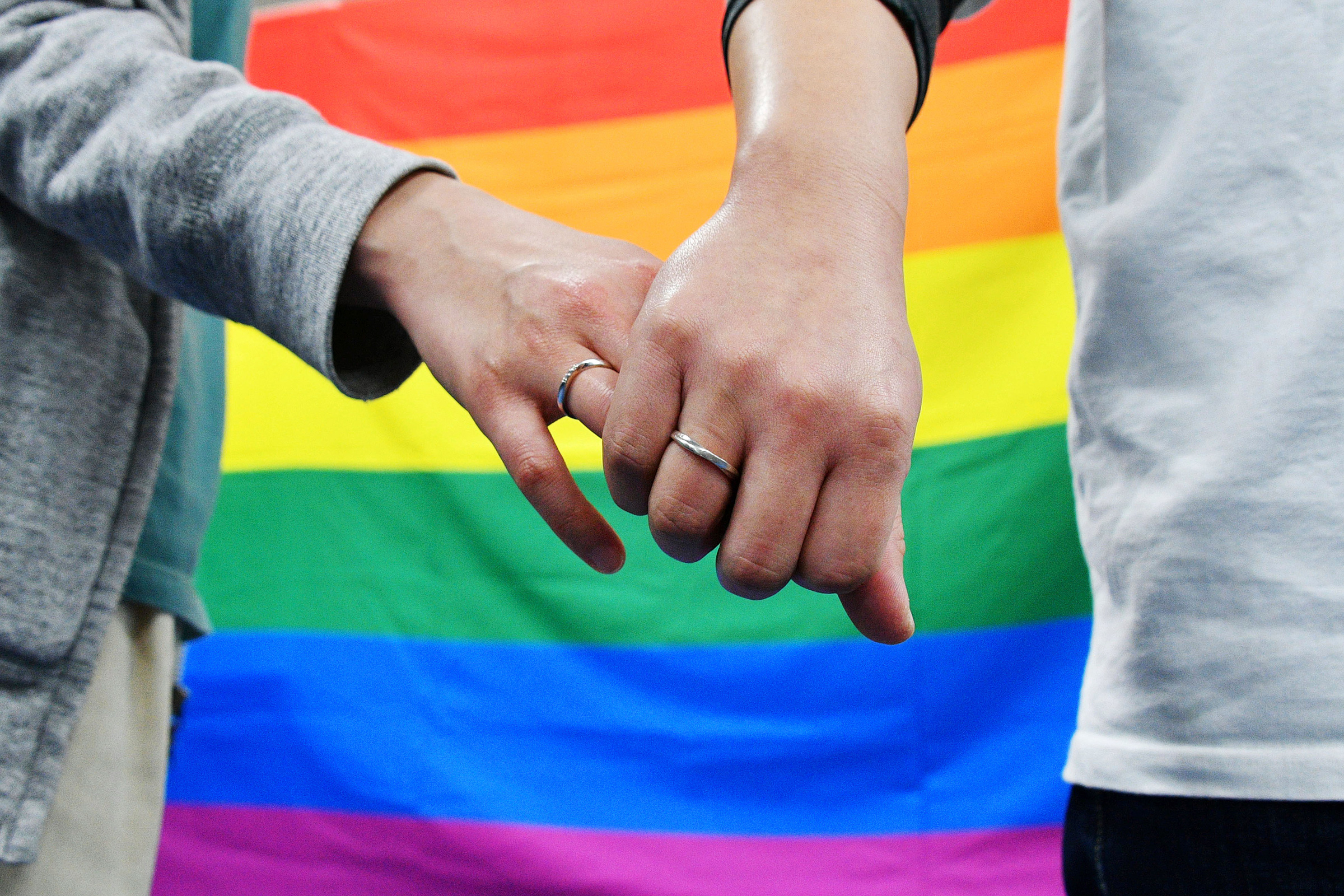
Good news arrived in Soyoka Yamamoto’s inbox on Tuesday. The 37-year-old, a representative of the organization Partnership Act for Tokyo, received an email with a downloadable PDF of a certificate from the Tokyo metropolitan government, recognizing the relationship between her and her partner of 11 years.
“This is the first time for the public to recognize us officially as a couple,” says Yamamoto, who petitioned Tokyo’s government to make the change. “It feels weird right now, but I feel safe.”
Advocates say the Tokyo government’s issuance of partnership certificates to same sex-couples, which began on Nov. 1, is an important moment for LGBTQ rights in Japan.
Tokyo isn’t the first—several prefectures in Japan have already introduced some form of partnership system. But the addition of Japan’s capital and most populous city now means that more than 60% of Japan’s population is covered in this way, according to advocates and local media.
Hurdles remain, but “It’s a big step for future action,” Gon Matsunaka, the president of Pride House Tokyo, tells TIME. “It’s a good step for everyone’s life.”

How does getting a partnership certificate help same-sex couples?
At the end of last week, more than 130 same-sex couples had applied online for partnership certificates, which are available to couples with at least one partner living, working or studying in Tokyo. Under the so-called Tokyo Partnership Oath System, same-sex couples can benefit from some services and welfare programs that opposite-sex couples are eligible for. A partnership certificate might simplify housing by making it easier for couples to apply for mortgages, or to move into public housing designated for families. It may allow a person to collect their partner’s life insurance, give consent for a medical procedure if their partner is ill or injured or to visit their partner in government-run hospitals.
Read More: A Court Ruled Japan’s Same-Sex Marriage Ban ‘Unconstitutional.’ Here’s What’s Next for LGBTQ Rights
“We always have to explain our relationship to get services,” says Yamamoto. “But now it will be easier. We don’t have to convince anybody that we’re a couple.”
Others agreed that their new certificates would bring them a bit more security. “Now we will be able to use the certificate to prove our relationship as a family at hospitals during an emergency. That will give us peace of mind,” Mamiko Moda, who is raising a 10-month-old baby with her female partner, told local media. The 42-year-old was speaking at a press conference in October, when applications for the certificates opened.
Still, the new system is not legally binding and partnership certificates fall short of full marriage rights. “It’s totally different,” says Matsunaka. He points out that Tokyo couples that want to move may no longer be covered, and that the private sector doesn’t have to follow the system.
Despite her relief at receiving a certificate, Yamamoto says the new system is, “not really quite enough for us to believe that we are equal.”

What LGBTQ rights look like in Japan
Japan is the only country in the Group of Seven (G7) industrialized nations that doesn’t fully recognize same-sex partnerships and it ranks second-to-last—only ahead of Turkey—in gay and transgender rights in the Organization for Economic Co-operation and Development (OECD), a group of 38 wealthy and middle-income countries. The ruling conservative Liberal Democratic Party (LDP), which has held power almost continuously since 1955, promotes traditional family values. Attempted advances for LGBTQ rights have sparked fierce backlash and discriminatory comments from some LDP lawmakers.
But Japan’s LGBTQ movement has gained momentum and public support in recent years—especially among younger people. More than 92% of Japanese people aged 18 to 29 say homosexuality should be accepted by society, according to a 2021 report by the Pew Research Center.
A push by activists ahead of last summer’s Tokyo Olympics to pressure the government to pass a law banning discrimination against LGBTQ people failed. But it sparked an outpouring of public support, with hundreds of thousands of people signing petitions backing the law. Major corporations—including Coca-Cola, Microsoft, Deloitte and the Japanese company SegaSammy (whose holdings include Sega video games)—threw their weight behind the legislation.
Read More: Japan Failed to Improve LGBTQ Rights Ahead of the Olympics. Japanese Athletes Are Coming Out Anyway
Activists say that the latest news is a step in the right direction. “This momentum will change public awareness and also the awareness of companies and some local politicians,” says Matsunaka.
Kanae Doi, the Japan director of NGO Human Rights Watch, says that the new system shows the overwhelming popular support for marriage equality and it “highlights the backwardness and the reluctance of the national government and the Diet on LGBT rights.” (The Diet is Japan’s legislature.) “The Japanese government and the Diet should heed to the demands of the Japanese people and need to introduce and pass comprehensive LGBT equality laws including the area of marriage,” she adds.
The latest development could help propel forward marriage equality, although activists recognize that a change in the next year or two is unlikely. The current government might not face a general election until 2025, and a series of challenges winding their way through the country’s legal system—more than a dozen same-sex couples filed lawsuits at district courts around Japan on Valentine’s Day in 2019—may take years to get an outcome.
So far the legal cases have had mixed results. In the first ruling, made in March last year, the Sapporo District Court said Japan’s definition of marriage, which excludes same-sex couples, violated constitutional guarantees of equality. But in June, a court in Osaka ruled that freedom of marriage in the constitution referred only to male-female unions, and that the country’s ban on same-sex marriage was therefore constitutional. The Tokyo District Court is scheduled to hand down its decision on a third case in late November.
Read More: This Buddhist Monk Is a Makeup Artist and an LGBTQ Activist
Doi, of Human Rights Watch, says that having a majority of Japan covered by same-sex partnership systems will increase pressure on the national government to take action on LGBTQ rights and marriage equality, and influence the judges of the pending marriage equality litigation cases.
“The influence over the judges is important since unless the national government or the Diet act swiftly, the supreme court will eventually be the institution which decides whether it is constitutional to leave the marriage law as it is or not,” she says.
Although progress is slow, advocates say they are hopeful for the future. “The Tokyo partnership system,” says Matsunaka, “is a good sign for the younger generation.”
More Must-Reads from TIME
- Cybersecurity Experts Are Sounding the Alarm on DOGE
- Meet the 2025 Women of the Year
- The Harsh Truth About Disability Inclusion
- Why Do More Young Adults Have Cancer?
- Colman Domingo Leads With Radical Love
- How to Get Better at Doing Things Alone
- Michelle Zauner Stares Down the Darkness
Write to Amy Gunia at amy.gunia@time.com